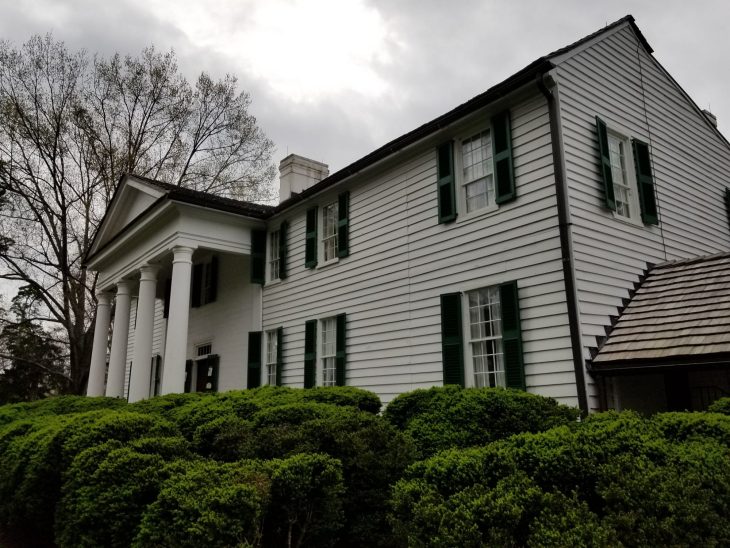
Word of the Day: Acquisitive
Today’s word of the day, courtesy of Dictionary.com, is acquisitive. Aquisitive means “tending or seeking to acquire and own, often greedily; eager to get wealth, possessions” (https://www.dictionary.com/browse/acquisitive). The word entered the language in the “1630s, ‘owned through acquisition’ (now obsolete, this sense going with acquired), from Latin acquisit-, past-participle stem of acquirere ‘accumulate, gain’ (see acquire) + -ive. Meaning ‘given to acquisition, avaricious’ is by 1824” (https://www.etymonline.com/search?q=acquisitive).
In order to get more into the background of the word, we need to look at the etymology of acquire: “’to get or gain, obtain,’ mid-15c., acqueren, from Old French aquerre ‘acquire, gain, earn, procure’ (12c., Modern French acquérir), from Vulgar Latin *acquaerere, corresponding to Latin acquirere/adquirere ‘to get in addition to, accumulate, gain,’ from ad ‘to,’ here perhaps emphatic (see ad-), + quaerere ‘to seek to obtain’ (see query (v.)). Reborrowed in current form from Latin c. 1600” (https://www.etymonline.com/word/acquire). That last sentence relates to an interesting phenomenon in English, that we sometimes borrow the same word more than once, sometimes with different meanings. And the asterisk before the Vulgar Latin word indicates that we have no extant text with this word.
On this date in 1860, Thomas Green Clemson (1807-1888) became the first United States Superintendent of Agriculture.
Clemson was born and raised in Philadelphia. Not much is known about his early life, but he did go to school in Vermont, where he studied mineralogy. He continued his studies in France, where he received a diploma as an assayer. We also know that his father died when Clemson was relatively young but left his children a relatively handsome estate.
Upon his return to the States, he bought land in South Carolina. In 1838, he married Anna Maria Calhoun, the daughter of the famous South Carolina politician John C. Calhoun. With this connection, and because of his language abilities and his experience overseas, he was given a position in Belgium as Chargé d’affaires. This position is just below the ambassador, taking on the responsibilities of the ambassador when the latter is away. He served in this position from 1844 to 1852.
Upon his return to the US, he bought land in Maryland and undertook agricultural research. His research was published in various scientific journals and led to a presentation at the Smithsonian Institution. Then, in 1860, he was made the first Superintendent of Agriculture, a position he held for about a year during the Buchanan administration. But he resigned his position upon the commencement of the Civil War to take the side of his chosen home state, South Carolina. In the CSA, Clemson advocated for the establishment of a Department of Agriculture. Interestingly, the Union established such a department in 1862.
After the Civil War was over and John C. Calhoun had died, the Calhoun property, including Fort Hill Plantation, Calhoun’s mansion, near Pendleton, SC, became a point of contention in the Calhoun family, Eventually, Clemson and Anna inherited the mansion and over 800 acres.
The couple had four children. One died in infancy. One died at around 3 of scarlet fever. Two of their children lived in adulthood, but in 1872, one died at 29 and the other, three weeks later, at 30. Anna Maria Calhoun Clemson died in 1875, at the age of 58. So Thomas Green Clemson had hundreds of acres of property, including the Fort Hill Plantation House, and no one to leave it to.
In the mid-1880s, Clemson wrote a will in which he left the land near Pendleton, SC, to the state for the establishment of a land-grant college, the Clemson Agricultural College of South Carolina. According to the wiki, “He believed that education, especially scientific education, leads to economic prosperity. He wanted to start an agricultural college because he felt that government officials did not appreciate the importance of agricultural education” (https://en.wikipedia.org/wiki/Thomas_Green_Clemson).
One interesting thing to note is that while Clemson Agricultural College started out as an all-white, all-male institution, it was not specified as such. Apparently a number of other colleges established around the same time, like Vanderbilt and Tulane, had founding documents limiting enrollment to white males. Was the exclusion an oversight on Clemson’s part or a sign of his being forward thinking?
My wife worked for Clemson University as Associate Professor of Accounting for 37 years, and during our long time in Clemson we have become fans of the school and its athletics. We have toured the Calhoun Mansion. My oldest child got her MBA from Clemson, and my third child got her B.S. in Mechanical Engineering. So I appreciate the fact that Clemson left this property to the founding of what is now a very good public university. But I think there is a lesson to be learned as well about being acquisitive. You can’t take it with you, and sometimes you have nobody to leave it to, or nobody who wants your stuff.
The image today is of Fort Hill Plantation on the campus of Clemson University in Clemson, SC (https://www.tripadvisor.com/Attraction_Review-g54178-d293593-Reviews-Fort_Hill_Plantation-Clemson_South_Carolina.html#/media-atf/293593/320430845:p/?albumid=-160&type=0&category=-160).